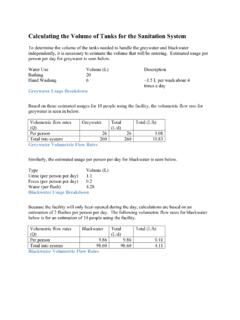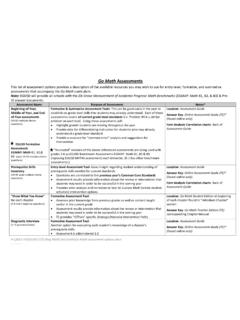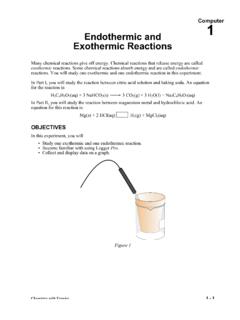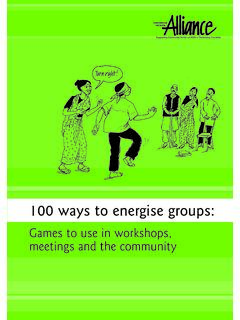Transcription of The Pen Is Mightier Than the Keyboard: © The Author(s ...
1 Psychological Science1 10 The Author(s ) 2014 Reprints and permissions: : ArticleThe use of laptops in classrooms is controversial. Many professors believe that computers (and the Internet) serve as distractions, detracting from class discussion and student learning ( , Yamamoto, 2007). Conversely, stu-dents often self-report a belief that laptops in class are beneficial ( , Barak, Lipson, & Lerman, 2006; Mitra & Steffensmeier, 2000; Skolnick & Puzo, 2008). Even when students admit that laptops are a distraction, they believe the benefits outweigh the costs (Kay & Lauricella, 2011).
2 Empirical research tends to support the professors view, finding that students using laptops are not on task during lectures (Kay & Lauricella, 2011; Kraushaar & Novak, 2010; Skolnick & Puzo, 2008; Sovern, 2013), show decreased academic performance (Fried, 2008; Grace-Martin & Gay, 2001; Kraushaar & Novak, 2010), and are actually less satisfied with their education than their peers who do not use laptops in class (Wurst, Smarkola, & Gaffney, 2008).These correlational studies have focused on the capac-ity of laptops to distract and to invite multitasking.
3 Experimental tests of immediate retention of class mate-rial have also found that Internet browsing impairs per-formance (Hembrooke & Gay, 2003). These findings are important but relatively unsurprising, given the literature on decrements in performance when multitasking or task switching ( , Iqbal & Horvitz, 2007; Rubinstein, Meyer, & Evans, 2001).However, even when distractions are controlled for, laptop use might impair performance by affecting the manner and quality of in-class note taking. There is a substantial literature on the general effectiveness of note taking in educational settings, but it mostly predates lap-top use in classrooms.
4 Prior research has focused on two ways in which note taking can affect learning: encoding and external storage (see DiVesta & Gray, 1972; Kiewra, 1989). The encoding hypothesis suggests that the pro-cessing that occurs during the act of note taking improves learning and retention. The external-storage hypothesis touts the benefits of the ability to review material (even from notes taken by someone else). These two theories are not incompatible; students who both take and review , OppenheimerLonghand and Laptop Note Takingresearch-article2014 Corresponding Author:Pam A.
5 Mueller, Princeton University, Psychology Department, Princeton, NJ 08544 E-mail: Pen Is Mightier Than the Keyboard: Advantages of Longhand Over Laptop Note TakingPam A. Mueller1 and Daniel M. Oppenheimer21 Princeton University and 2 University of California, Los AngelesAbstractTaking notes on laptops rather than in longhand is increasingly common. Many researchers have suggested that laptop note taking is less effective than longhand note taking for learning. Prior studies have primarily focused on students capacity for multitasking and distraction when using laptops. The present research suggests that even when laptops are used solely to take notes, they may still be impairing learning because their use results in shallower processing.
6 In three studies, we found that students who took notes on laptops performed worse on conceptual questions than students who took notes longhand. We show that whereas taking more notes can be beneficial, laptop note takers tendency to transcribe lectures verbatim rather than processing information and reframing it in their own words is detrimental to achievement, cognitive processes, memory, educational psychology, open data, open materialsReceived 5/11/13; Revision accepted 1/16/14 Psychological Science OnlineFirst, published on May 22, 2014 as Mueller, Oppenheimertheir notes (as most do) likely profit from both approaches (Kiewra, 1985).
7 The beneficial external-storage effect of notes is robust and uncontroversial (Kiewra, 1989). The encoding hypothesis has been supported by studies finding posi-tive effects of note taking in the absence of review ( , Aiken, Thomas, & Shennum, 1975; Bretzing & Kulhavy, 1981; Einstein, Morris, & Smith, 1985); however, other results have been more mixed (see Kiewra, 1985; Kobayashi, 2005, for reviews). This inconsistency may be a result of moderating factors (Kobayashi, 2005), poten-tially including one s note-taking taking can be generative ( , summarizing, paraphrasing, concept mapping) or nongenerative ( , verbatim copying).
8 Verbatim note taking has generally been seen to indicate relatively shallow cognitive pro-cessing (Craik & Lockhart, 1972; Kiewra, 1985; Van Meter, Yokoi, & Pressley, 1994). The more deeply infor-mation is processed during note taking, the greater the encoding benefits (DiVesta & Gray, 1973; Kiewra, 1985). Studies have shown both correlationally (Aiken et al., 1975; Slotte & Lonka, 1999) and experimentally (Bretzing & Kulhavy, 1979; Igo, Bruning, & McCrudden, 2005) that verbatim note taking predicts poorer performance than nonverbatim note taking, especially on integrative and conceptual use facilitates verbatim transcription of lecture content because most students can type significantly faster than they can write (Brown, 1988).
9 Thus, typing may impair the encoding benefits seen in past note-tak-ing studies. However, the ability to transcribe might improve external-storage has been little research directly addressing potential differences in laptop versus longhand note tak-ing, and the existing studies do not allow for natural variation in the amount of verbatim overlap ( , the amount of text in common between a lecture and stu-dents notes on that lecture). For example, Bui, Myerson, and Hale (2013) found an advantage for laptop over longhand note taking.
10 However, their results were driven by a condition in which they explicitly instructed partici-pants to transcribe content, rather than allowing them to take notes as they would in class. Lin and Bigenho (2011) used word lists as stimuli, which also ensured that all note taking would be verbatim. Therefore, these studies do not speak to real-world settings, where laptop and longhand note taking might naturally elicit different strategies regarding the extent of verbatim Moreover, these studies only tested immediate recall, and exclusively measured factual (rather than concep-tual) knowledge, which limits generalizability (see also Bohay, Blakely, Tamplin, & Radvansky, 2011; Quade, 1996).
















